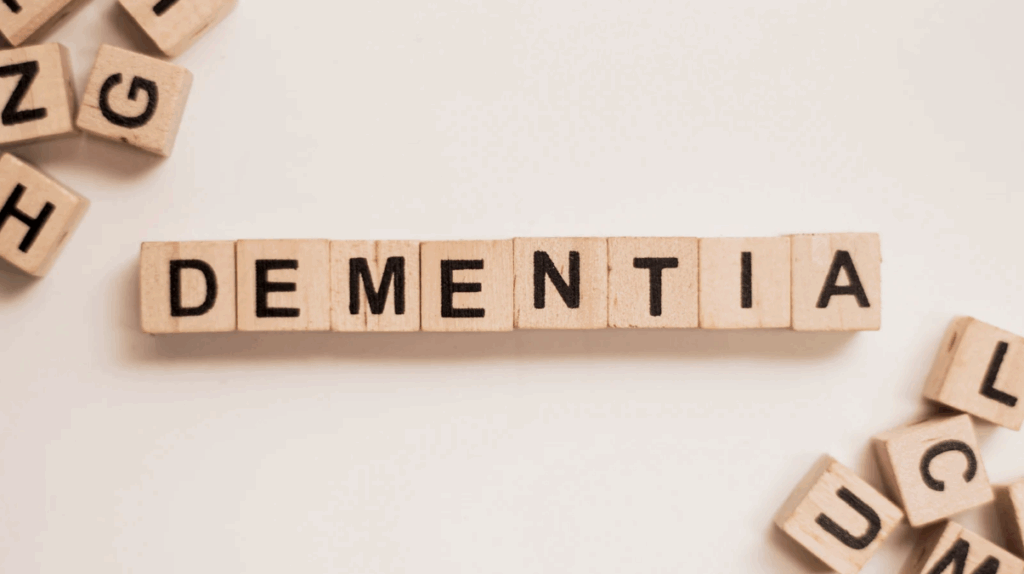
When small changes start appearing — forgetting names, repeating stories, or getting confused about dates — it’s natural for families to wonder if something more serious is happening. Dementia can be a difficult subject to face, especially when it touches someone you deeply care about. Understanding it early can make a world of difference in providing the right care and reassurance.
Dementia isn’t a single disease but a broad term describing symptoms that affect memory, reasoning, and daily functioning. It develops gradually, often leaving families unsure whether what they’re seeing is simply normal aging or something more concerning. This guide is here to help you recognize the early signs of dementia, understand what they mean, and take compassionate steps to support your loved one with dignity and love.
What Exactly Is Dementia?
Dementia is not just about forgetfulness. It refers to a decline in mental ability that’s severe enough to interfere with daily life. It occurs when brain cells are damaged and can no longer communicate effectively, leading to changes in memory, judgment, communication, and behavior.
Although dementia primarily affects older adults, it is not a normal part of aging. While many people may occasionally forget where they put their keys or struggle to remember a name, dementia goes beyond that — it disrupts one’s ability to function independently.
There are several types of dementia, each affecting the brain differently:
- Alzheimer’s disease – The most common type, marked by memory loss and confusion due to the buildup of abnormal proteins in the brain.
- Vascular dementia – Caused by reduced blood flow to the brain, often after a stroke or multiple small strokes.
- Lewy body dementia – Associated with unusual proteins (Lewy bodies) that cause hallucinations, sleep disturbances, and movement issues.
- Frontotemporal dementia – Affects personality, behavior, and language, usually appearing at a younger age than Alzheimer’s.
- Mixed dementia – A combination of two or more types, often Alzheimer’s and vascular dementia.
Understanding the differences helps families make sense of the specific symptoms their loved one might show — and why every case of dementia can look a little different.
Early Warning Signs Families Shouldn’t Ignore

One of the most common questions families ask is: “How can we tell if it’s just aging or something more serious?”
Recognizing early signs of dementia is the first step toward getting help. The symptoms often begin subtly, which is why families sometimes miss them or brush them off. However, patterns over time can reveal the truth.
Here are the most common early warning signs to watch for:
- Memory loss that disrupts daily life – Forgetting newly learned information, repeating questions, or relying heavily on reminders.
- Difficulty completing familiar tasks – Struggling to use household appliances, manage bills, or prepare a simple meal.
- Confusion about time or place – Losing track of days, forgetting where they are, or becoming disoriented even in familiar environments.
- Trouble with language – Having trouble finding the right words, following conversations, or expressing thoughts clearly.
- Misplacing things frequently – Putting items in odd places (like keys in the refrigerator) and being unable to retrace steps.
- Withdrawal from hobbies or social life – Losing interest in activities once loved or avoiding social situations due to embarrassment or confusion.
- Changes in mood or personality – Increased irritability, anxiety, or suspicion toward family members.
For example, your mother may begin repeating the same story several times in one afternoon or forget the way to a close friend’s house. While these moments may seem small, they could be early indicators of cognitive decline.
The key is pattern and frequency — occasional forgetfulness happens to everyone, but consistent, progressive changes should prompt a medical evaluation.
How Dementia Differs from Normal Aging
Aging naturally brings some mental changes. We may forget appointments occasionally or take longer to recall a name. But dementia is different — it causes significant, ongoing cognitive decline that interferes with daily life.
Here’s how to tell the difference:
| Normal Aging | Possible Sign of Dementia |
| Forgetting names but remembering them later | Forgetting names and never recalling them |
| Occasionally misplacing items | Misplacing things and being unable to find them again |
| Sometimes struggling to find words | Frequently losing the ability to follow or join conversations |
| Missing a monthly bill payment | Struggling to manage finances consistently |
| Occasional bad decisions | Repeatedly making poor or unsafe decisions |
Understanding this distinction helps families react with perspective rather than fear. Occasional forgetfulness doesn’t mean dementia — but consistent confusion or disorientation warrants professional attention.
Emotional and Behavioral Changes Families May Notice
Dementia affects more than memory — it also influences mood, personality, and emotional control. Families often notice that their loved one “just isn’t themselves” anymore.
Common behavioral and emotional signs include:
- Increased irritability or frustration
- Anxiety or depression
- Sudden mood swings
- Suspiciousness or paranoia (“Someone’s stealing from me”)
- Disinterest in personal care or hygiene
- Inappropriate behavior, such as laughing or crying without reason
These changes can be painful to witness, especially for close family members. It’s important to remember that these behaviors stem from changes in the brain, not from stubbornness or lack of effort. Patience, empathy, and calm reassurance are essential when responding to these moments.
The Importance of Early Evaluation and Diagnosis

When families notice multiple signs of dementia, the next step is often uncertainty: “Should we see a doctor yet?” The answer is yes — sooner rather than later.
An early diagnosis of dementia offers many benefits:
- It helps identify reversible causes (like medication side effects or vitamin deficiencies).
- It gives families time to plan for care, finances, and safety.
- It provides access to medications and therapies that may slow progression.
- It offers emotional relief by replacing fear with clarity and action.
Diagnosis typically involves:
- Cognitive tests to evaluate memory, problem-solving, and attention.
- Neurological exams to assess brain and nerve function.
- Imaging tests (MRI or CT scans) to check for structural changes.
- Lab tests to rule out infections, thyroid issues, or other causes.
Not all memory problems mean dementia — depression, stress, or sleep deprivation can mimic its symptoms. That’s why a thorough evaluation is essential. Early recognition empowers families to make informed decisions before symptoms worsen.
How Dementia Affects Daily Life and Independence
As dementia progresses, the impact becomes clearer in day-to-day life. Tasks that once seemed simple start to feel overwhelming.
Common challenges include:
- Forgetting to take medications or taking them twice.
- Leaving the stove on or doors unlocked.
- Getting lost while walking or driving.
- Difficulty following instructions or managing finances.
- Losing track of personal hygiene and meals.
Families often notice that their loved one needs gentle reminders or step-by-step guidance. Over time, this can increase caregiver responsibilities and emotional strain.
Practical caregiving tips:
- Keep routines consistent — structure reduces confusion.
- Label important items (e.g., “Toothbrush,” “Closet,” “Bathroom”).
- Simplify the home — reduce clutter and improve lighting.
- Use safety devices like stove alarms or GPS trackers.
- Celebrate small moments of independence.
Maintaining dignity is vital. Supporting independence wherever possible helps the person with dementia feel capable, respected, and loved.
What Families Can Do After Noticing the Signs

If your family suspects dementia, take action early — not from panic, but from compassion and preparedness.
Here’s what to do:
- Schedule a medical appointment. Document specific changes you’ve observed and share them with the doctor.
- Keep a symptom journal. Write down when confusion happens, what triggers it, and how long it lasts.
- Involve the whole family. Discuss roles, caregiving responsibilities, and emotional support.
- Seek education and support groups. Connecting with others who understand can ease isolation and anxiety.
- Plan ahead. Consider future care needs, finances, and safety measures before an emergency arises.
This is also a good time to have open conversations about wishes, preferences, and quality of life. While these discussions can be difficult, they foster peace of mind for everyone involved.
Supporting a Loved One with Dementia Compassionately
Caring for someone with dementia is not just about safety — it’s about preserving dignity and emotional well-being.
Communication tips:
- Use calm, reassuring tones.
- Keep sentences short and simple.
- Avoid arguing or correcting mistakes; gently redirect instead.
- Maintain eye contact and physical warmth (a gentle touch or smile).
- Use visual cues or pictures when words become difficult.
Emotional support:
- Focus on remaining strengths rather than losses.
- Play familiar music, look through old photos, or share favorite scents to spark memories.
- Encourage small daily successes — folding laundry, watering plants, or listening to music together.
For caregivers:
Self-care is not optional — it’s essential. Caring for someone with dementia can be emotionally and physically demanding. Take regular breaks, ask for help from other family members, and explore respite care or community programs.
Remember: being a patient, loving presence matters far more than always finding the right words.
When to Seek Professional Help

As dementia progresses, families may reach a point where in-home care becomes too difficult or unsafe. Recognizing these moments early ensures the best possible quality of life.
Consider professional support if:
- Your loved one wanders frequently or gets lost.
- Aggressive or unpredictable behavior increases.
- They forget to eat, take medication, or maintain hygiene.
- The caregiver feels exhausted or overwhelmed.
- Frequent nighttime restlessness or “sundowning” makes supervision difficult.
- There are repeated falls or safety incidents at home.
- Your loved one begins showing signs of severe confusion, such as not recognizing family members or believing they are in a different time or place.
- Managing medical appointments, medications, or finances becomes too complex to handle alone.
Final Thoughts: Facing Dementia with Grace and Hope
The word “dementia” can sound frightening, but it doesn’t erase the person you love. Beneath the confusion and memory loss, they remain the same parent, spouse, or friend who shaped your life with love and laughter. By learning the signs of dementia early and seeking timely care, families can ensure their loved one receives the understanding and support they deserve. There is no single path through this journey — but with compassion, patience, and professional guidance, there can still be moments of joy, clarity, and connection.
As someone who had an aunt who bravely battled dementia, I understand how overwhelming and emotional the experience can be for families. The uncertainty, exhaustion, and grief can be heavy, but so can the love, resilience, and small moments of connection that make each day meaningful. I hope this article has offered you guidance, comfort, and the reassurance that you’re not walking this path alone. At ANN & AGNES Healthcare Solution Agency, we stand beside families with compassion and expertise, helping you care for your loved one with dignity, patience, and unwavering support.
